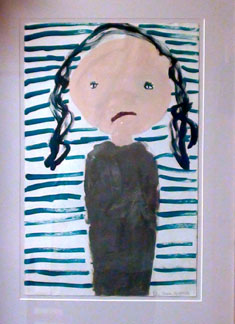

Psychotherapy & Counseling:
Working with the Individual:
There are various events in life that cause distress. They may be predictable milestones, like marriage or retirement; or the may come as a surprise such as the death of a loved one, a divorce, or the loss of employment. These situations may require a series of sessions to help sort out the options by remembering personal resources and finding additional skills to get back on track.
Sometimes, at a settled and seemingly successfully point in a lifetime, a person notices a reoccurring pattern which may impact relationships, employment, or self satisfaction. Questions resurface about childhood or earlier experiences. It becomes useful to identify the patterns, both positive and negative, that impact sense of well being and performance. Through psychotherapy recall, insight, and intellect can strengthen an appreciation of worth and option for change and growth.
In collaboration with Dr.Permesly, Roxanne can provide psychiatric and psychopharmacological interventions for individuals with difficult-to-treat conditions and dual disorders of chronic, long-standing duration.
Working with Couples:
There is a delicate balance in a relationship. While it is important for each partner to be clear in individual goals and direction, the importance of commitment and mutuality becomes significant. Each partner must have the skills to express needs, and at the same time, respond to the needs of the other. This requires communication skills, personal insight, and a capacity for empathy.
Couples therapy helps each individual partner find emotional well-being and develop the skills to succeed in the relationship. It is a give and take. It is a sharing and blending. There is need for understanding, communication, and problem solving.
Working with Children:
Children do not have the cognitive or language skills to effectively express what is troubling them. Their response is often big and misdirected. Whether the child is dealing with a normal life change (such as moving to the next school level or adjusting to the addition of a sibling) or dealing with family disruption (such as a divorce or relocation), specialized treatment can be helpful.
Learning styles and attentional difficulties may interfere with a child’s success and require intervention. As children face increasing academic or social demands, the stakes may become higher. The responses may have greater intensity with greater consequences. This is particularly problematic for adolescents as they struggle to break away while needing safety and security.
In a therapeutic setting the child will develop suitable rapport and begin to present the internal and external concerns for treatment. Younger children utilize play therapy or art therapy to express their world through action rather than words. Specific cognitive approaches may be effective. Disruption for a child creates disruption for the family. The involvement of parents, whether in one household or two, is vital.
Working with Parents and Families:
It is hard to be a parent. Children come with a variety of gifts, skills, and difficulties. It often seems like, “oh, no….now what.” While children may present a “cool” or “in control” demeanor, they desperately need the support of a strong parenting team. Through understanding the needs of the children and the expectations of each parent, the family will outline the trends that have been established and define the areas which need work.
This is more difficult with divorced or blended families, but the value of “being on the same page” goes a long way. Routine and consistency are paramount. Each household must look into its own values, recognizing that for children transition and adjustment are difficult. When a change in the family occurs or a problem arises, the family must find a way to adjust. This requires consideration, compromise, and accommodation.
Assessment and Treatment Provided for Adults And Children:
- Adjustment reaction
- Self esteem and sense of competency
- Situational concerns: affecting current functioning or relationship
- PTSD and other trauma-related conditions
- Mood disorders, including depression and bipolar disorder
- Anxiety disorders, including panic, social anxiety, separation anxiety, generalized anxiety and posttraumatic stress disorders
- Attention-deficit/hyperactivity disorder and Asperger's Syndrome
- Oppositional defiant disorder
- Personality disorders
- Other issues that seriously impair day to day living, such as family life, work, school and professional behavior






